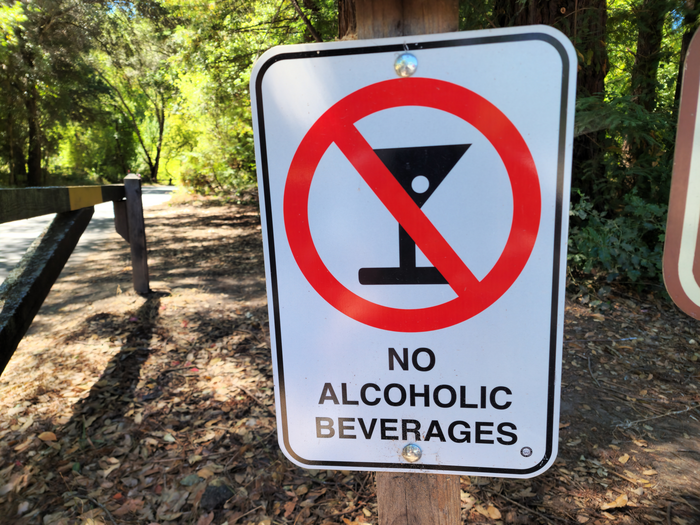Correspondence shows troubling interactions between U.S. officials and the alcohol industry

Credit: Journal of Studies on Alcohol and Drugs
Correspondence shows troubling interactions between U.S. officials and the alcohol industry
By Kimberly Flynn
PISCATAWAY, NJ — Growing evidence exists that the alcohol industry uses a variety of strategies to influence public policy in a way that is advantageous to its own corporate interests, rather than the interest of public health. Recent communication between employees of the National Institute on Alcohol Abuse and Alcoholism (NIAAA) and alcohol industry groups shows extensive interaction on policy-relevant scientific issues, according to a new study in the Journal of Studies on Alcohol and Drugs.
Researchers at the University of York in the United Kingdom conducted a thematic content analysis on 4,784 pages of email correspondence obtained through Freedom of Information Act requests. The emails were sent between 43 NIAAA staff members and representatives of 15 alcohol industry groups—including producers and trade associations—between 2013 and 2020.
The analysis focused on 12 leaders at the NIAAA and various contacts in the alcohol industry: representatives of two alcohol producers (AB InBev and Diageo), two trade associations (the Beer Institute and the Distilled Spirits Council of the United States [DISCUS]), and the International Alliance for Responsible Drinking (IARD).
The researchers—Gemma Mitchell, Ph.D., and Jim McCambridge, Ph.D.—found that the NIAAA leaders provided the alcohol industry with extensive information about scientific research and its policy implications. The NIAAA leaders communicated often with their industry contacts via email, telephone, and in-person meetings.
“Discussions were facilitated by the willingness of NIAAA leaders to meet with industry and have other informal contacts, as well as NIAAA leadership presence at industry-sponsored and other events,” the authors write. “Key industry actors asked NIAAA leaders for help on science and policy issues. At times, NIAAA leaders heavily criticized public health research and researchers in correspondence with industry.”
The authors also mention the problem of the “revolving door”: Some NIAAA leaders subsequently went to work for industry. This is one way in which close relationships are forged between NIAAA leadership and key industry groups, allowing for the free flow of privileged information and other questionable practices.
Mitchell and McCambridge point to the scope of their data over a long period as a strength of their research, and they also used publicly available data whenever possible to confirm any information contained in the emails. They say their findings add to other recent studies that identify the long-term effects of industry influence on alcohol science.
“Ongoing relationships between NIAAA leaders and the alcohol industry meant that industry representatives could access privileged information on a wide range of topics, from the US Dietary Guidelines to alcohol and cancer,” says Mitchell. “Our findings are hugely concerning, and we hope the NIAAA and National Institutes of Health will regard this report not as presenting a public relations challenge to be managed, but as posing a set of major scientific challenges to which it must rise.”
“The depth of the relationships between NIAAA senior leaders and key alcohol industry contacts uncovered here is disturbing,” says McCambridge. “The study findings provide examples of alcohol public health science being opposed rather than championed by NIAAA leaders, at least in their direct communications with industry. There is an urgent need to understand better the nature of this problem. The implications are profound when one considers that NIAAA funds the majority of the world’s alcohol science.”
An accompanying editorial by Thomas Babor, Ph.D., M.P.H., editor of the Journal of Studies on Alcohol and Drugs, underlines the importance of monitoring how the alcohol industry funds research projects and how it is involved in scientific activities.
“What is described in the Mitchell and McCambridge article, and related evaluations . . . provide strong evidence that alcohol industry influence has penetrated the highest levels of the NIAAA in ways that threaten public health at both a national and global level,” Babor writes.
—–
Mitchell, G., & McCambridge, J. (2023). Interactions between the U.S. National Institute on Alcohol Abuse and Alcoholism and the alcohol industry: Evidence from email correspondence 2013–2020. Journal of Studies on Alcohol and Drugs, 84, 11–26. doi:10.15288/jsad.22-00184
—–
For interview requests from U.K.-based media, please arrange an interview with Gemma Mitchell, Ph.D. (media contact Sarah Manning, [email protected]).
For all interview requests from non-U.K. media, please arrange an interview with Jim McCambridge (media contact Alistair Keely, [email protected]).
—–
The Journal of Studies on Alcohol and Drugs is published by the Center of Alcohol & Substance Use Studies at Rutgers, The State University of New Jersey. It is the oldest substance-related journal published in the United States.
—–
The Journal of Studies on Alcohol and Drugs considers this press release to be in the public domain. Editors may publish this press release in print or electronic form without legal restriction. Please include a byline and citation.
—–
To view the public domain, stock-photo database of alcohol, tobacco and other drug-related images compiled by the Journal of Studies on Alcohol and Drugs, please visit jsad.com/photos.
Journal
Journal of Studies on Alcohol and Drugs
DOI
10.15288/jsad.22-00184
Method of Research
Content analysis
Subject of Research
People
Article Title
Interactions between the U.S. National Institute on Alcohol Abuse and Alcoholism and the alcohol industry: Evidence from email correspondence 2013-2020
Article Publication Date
20-Feb-2023
COI Statement
The authors declare no conflicts of interest.




